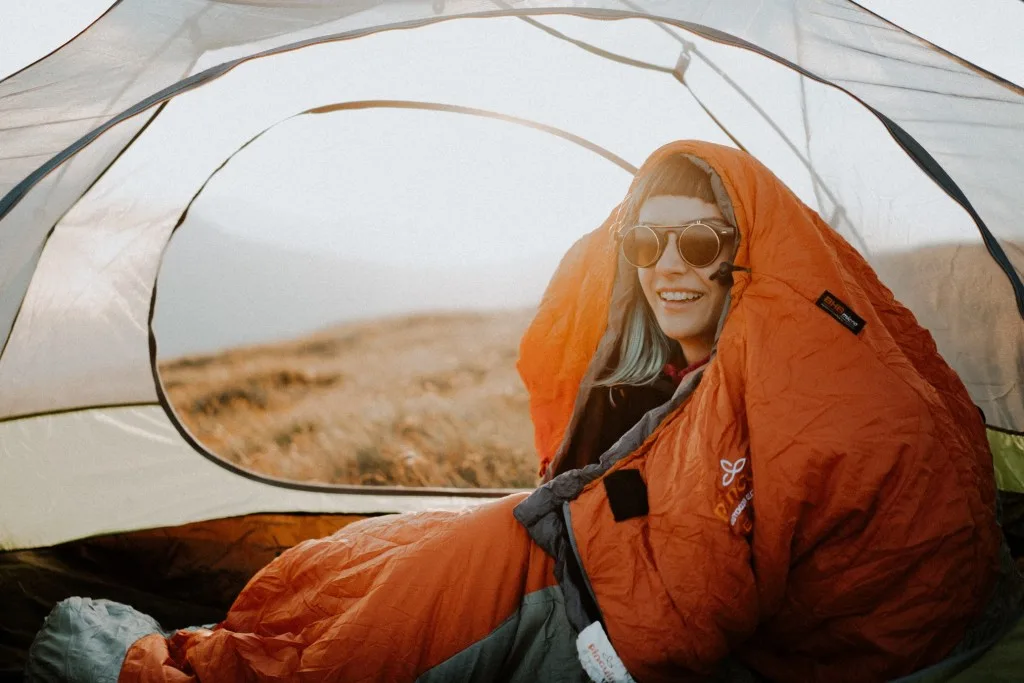A camping generator can be a game-changing piece of equipment when camping. It can completely revolutionize how and where you camp. Many of the best camping generators are relatively light and easy to store, making them easy to bring on your adventures.
However, before you add a generator to your online shopping cart or head to the store, there are some things you should know about them.
We want you to make the most out of every second you have while camping with your loved ones. Today, we’re sharing seven things you need to know about camping generators. Let’s get started!
What Are Camping Generators?
Camping generators are portable power sources that typically use gasoline, diesel, or propane to generate electricity. The size of the generator will determine how much power is available to use. The larger the generator, the more power it will create, increasing weight and dimensions.
RVers looking to camp outside of established campgrounds and power their rigs often rely on camping generators. However, some tent campers will also utilize them for their electrical needs.
Pro Tip: We uncovered which Camping Generators Are Decent, Better & The Best to help you pick which one is right for you.
Why Would You Need a Generator While Camping?
Having a generator while camping can unlock many new camping opportunities. Whether camping in a tent or an RV, having a power source can be necessary. A generator can make it possible to utilize electrical appliances like pressure cookers and TVs and even charge up your devices.
Many RVers will utilize their RV’s battery bank while camping off the grid. However, if they want to run high-power items like microwaves or an air conditioner, they’ll often require a generator. These high-powered items require too much juice to run from most battery banks.

7 Things to Know About Camping Generators
There are some things you should know when shopping for camping generators. Let’s look at some of those things to keep in mind, so you avoid wasting money and get the best camping generator.
1. What Size Generator Do I Need for Camping?
The size of the generator you’ll need while camping will depend on what you want to power. If you’re simply looking to keep your laptops and cell phones charged, you could get by with something as simple as a solar generator like a Jackery.
It’s easy to think of these generators as huge charging bricks, similar to what you’ve likely used for charging your phone.
Now, if you’re going to power an RV, you may need a portable generator that provides 2,000W to 3,500W of power. The more power you’ll need, the larger the generator you’ll need. Those planning to run an air conditioner or other high-powered device will often require at least 2,500W to 3,000W without making other modifications.
2. What Is the Best Silent Generator for Camping?
A solar generator is one of the best silent generators for camping. These devices can store tremendous power for their size and weight. They’re very lightweight, making them easy to take with you no matter where your adventures take you.
You can easily recharge them in your vehicle, at a nearby electrical outlet, or through a solar panel.
If you plan to regularly camp away from a power source, this is a great option. Because they’re silent, you don’t have to deal with the annoying hum of a generator running in the background during your camping adventures.

3. Can You Run a Generator in a Camping Tent?
You should only use a generator in places with plenty of ventilation. When a generator hums along, it’s going to emit deadly exhaust. You should never run a generator inside or in a space with minimal ventilation, including while camping in a tent.
However, it’s possible if you’re running the generator right outside the tent. You should still ensure the generator is a safe distance away from your tent and that the exhaust is blowing away from any tents. There have been instances where the toxic fumes from poorly placed generators have caused deaths.
4. How Do I Keep My Generator Dry When Camping?
A generator cover is the best way to keep your generator safe from the elements. These covers protect your generator and its sensitive components and provide enough air circulation for the exhaust to safely exit. Due to the unique design of generators, you’ll want to find a cover for your specific model.
If you’re crafty, you may be able to construct your own generator cover. It doesn’t have to be anything fancy either! Something as simple as a table-like structure that keeps your generator dry will do the trick.
We’ve seen some RVers place unused folding tables over their generators or put them in the back of their trucks under a bed cover with the exhaust facing out. As we said, it doesn’t have to be fancy to get the job done.
5. Can Generators Be Used in National Parks?
Many rustic national park campgrounds allow generators, but only during specific hours. This helps ensure all guests have an enjoyable camping experience.
Generator hours will vary from campground to campground, so check with each park. Some of the strictest generator rules will typically allow generator usage for a few hours in the morning and early evening.

6. Is It Rude to Run a Generator at a Campground?
Some people are less forgiving than others when people use generators while in a campground. Running a generator for a handful of hours throughout the day is typically understandable for most people. However, leaving your generator running throughout the night or unnecessarily likely won’t go over well for those camping around you.
If you’re planning to spend time using a generator while camping, it’s worth investing in the quietest generator possible. Not only for your sake but also for those camping around you. You should always be considerate of others around you.
7. What Is the Difference Between a Normal Generator and an Inverter Generator?
Inverter generators typically utilize an electronic throttle that adjusts based on the load. A normal generator will create the maximum amount of power regardless of demand. This makes inverter generators substantially better when it comes to fuel efficiency.
A normal generator also is incredibly loud. They can produce upwards of 80 dB during use, which is much louder than inverter generators’ 50 dB to 60 dB. When you’re running your generator, anyone within earshot will likely appreciate you choosing an inverter generator.
An inverter generator is also safer with RVs and other sensitive electronics. This is because an inverter generator converts the power before sending it, which creates a more “clean power.” This clean power protects your electronics from power surges and other potentially damaging issues.
Pro Tip: Find yourself wondering Should You Run an RV Generator While You’re Sleeping? We uncovered if it is safe to do it!
Are Generators Good for Camping?
Depending on your preferred camping style, you may or may not need power while camping. However, a generator is great for those wanting to try camping in new locations or spots where power isn’t available.
Using the microwave in your RV or not missing the big game while out in nature can be extremely convenient. As long as you’re mindful of others while using your generator, it’s a great addition to your camping gear.
Do you carry a generator while camping? Tell us in the comments!
Discover the Best Free Camping Across the USA
To be honest with you, we hate paying for camping. There are so many free campsites in America (with complete privacy).
You should give it a try!
As a matter of fact, these free campsites are yours. Every time you pay federal taxes, you’re contributing to these lands.
Become a FREE CAMPING INSIDER and join the 100,000 campers that love to score the best site!
We’ll send you the 50 Best Free Campsites in the USA (one per state). Access the list by submitting your email below: